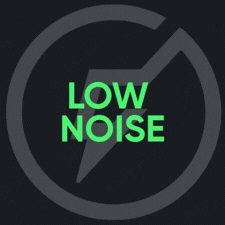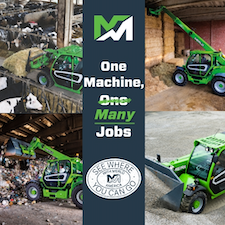Build Your Business -- Up your online marketing game
Stop treating industrial marketing like consumer marketing. Here’s how.
by Dan Beadle
A majority of today’s B2B, industrial focused companies continue to carry out marketing efforts with a one-size-fits-all approach. Many B2B companies looking to start or ramp up their online marketing will read about general best practices or others’ success stories to help develop an online marketing plan.
But traditional and digital marketing have historically been dominated by the consumer market, so the majority of information is consumer market-focused.
When a consumer-focused marketing plan is used for an industrial company with a technical and niche product offering and an average customer acquisition time frame of six months to a year, it will never produce the desired results. This type of plan rarely takes into consideration their specific industry, product and service offering, target audience, user shopping patterns or lead acquisition cost and duration.
Right from the planning phase, the marketing plan is destined to fail. This common scenario is why marketing is still such a scary thing for so many B2B companies.
But if the plan is customized for the B2B company and its target audience, the results can be groundbreaking.
Three differences between B2B and B2C marketing
While no two businesses are the same, there are still commonalities across most industrial market segments and consumer markets. Understanding the differences between the two demonstrates why they must be treated differently from a marketing standpoint.
While there are numerous differences in business types and approaches when comparing consumer and industrial marketing, here are the three most important differences when setting up a marketing plan.
1. Types of products and services
In general, the industrial market’s business offerings are more complex and technological when compared with the consumer market. This alone should completely change your approach to online marketing between the two market segments. With the industrial market, companies need to:
- Educate users about the intricacies that accompany these advanced products and services.
- Create a plan to help guide users through the longer sales funnel.
- Ensure employees are readily available to answer questions and assist potential customers.
2. Influencers and decision makers
In the consumer market, there is usually one individual who is both the influencer and decision maker: the individual buying the product. Consumers may ask others for input, do research on the product or look at reviews to see what others think, but at the end of the day, they are the ones who decide to purchase or not.
Within the industrial market, the decision to buy is usually influenced by a number of people. Influencers and decision makers in the industrial segment can include engineers, project managers, procurement professionals, health and safety personnel, project managers, C-level executives and everyone else in-between.
With so many different types of influencers, all with different purchasing agendas, industrial marketing needs to:
- Define different types of influencers and decision makers and the specific challenges each faces.
- Create lists to segment different influencers and decision makers to better provide them with the information that is most important to them.
- Develop marketing initiatives and content tailored toward these different types of decision makers.
With multiple people involved in B2B purchasing decisions, it is vital that companies effectively market toward each profile and provide the right information to the right people.
3. Educated buyers
When looking at buyer personnas for industrial vs. consumer markets, industrial buyers are typically the group with better knowledge of the product or service they are wanting to purchase. This makes sense because the industrial buyer has extensive industry and job experience and the purchase decision can reflect on job performance. Buyers within the industrial market are not going to impulsively buy machine parts or work with a distributor they just heard about.
While marketing toward educated buyers can make the education process easier, there are several key areas that must be considered when implementing industrial marketing:
- Include high-level content on your website and within marketing material. Educated buyers need to trust that you know what you are talking about. If readers feel the information you provide is entry level or incorrect, they probably will never do business with you.
- Provide technical information to help with purchasing decisions. While a normal user may skip right over spec sheets, user manuals, parts lists and othr important information, an educated buyer will likely use this technical information in their research and buying decision. Content and tools such as these helps educate users and build credibility.
- Make yourself readily available for further assistance. Educated buyers making big purchases are most likely not going to become a customer just because they found you on the web. The industrial market still relies heavily on relationships, so make sure employees are available when potential customers are ready to take the next step.
Change your approach to change your results
This is just the tip of the iceberg regarding the many differences between consumer marketing and industrial marketing, but these poiints should get you thinking about all the things to consider when creating an industrial marketing plan.
Dan Beadle is an online marketing strategist at SVM E-Marketing Solutions, www.svmsolutions.com.
This article appeared in the September-October 2019 issue of Pro Contractor Rentals magazine. © 2019 Urbain Communications LLC. All rights reserved.













